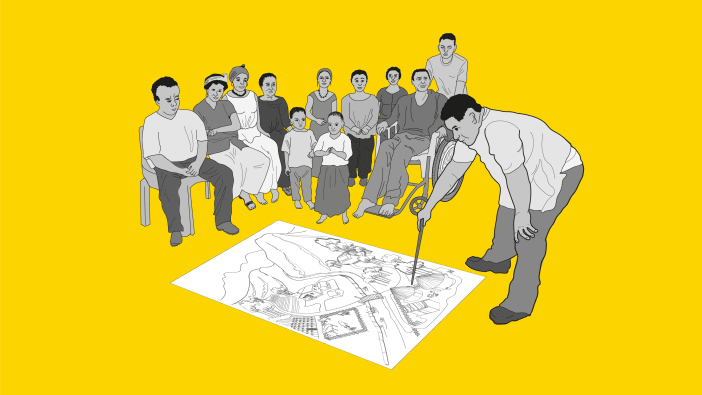Leadership makes or breaks groups of any size - from small community groups through to large organisations. An effective leader can turn a disorganised group into a great one, while a poor leader can destroy a group which may have been effective for many years beforehand. All groups thrive with good leadership and become ineffective or fall apart with poor leadership.
It is very easy for leaders to focus on the problems they face and forget the wider dimension to leadership. If we become too focused on achieving tasks we forget that one of the primary roles of a leader is to help people reach their full potential. In particular, one of the most important tasks for leaders is to develop other leaders.
Leaders need to prepare someone to succeed them - just as in the Bible Moses prepared Joshua and Elijah prepared Elisha. Our Board recently challenged us to draw up a succession plan for the 20 roles most critical to our success as an organisation. We drew up a chart showing who could step into those roles immediately, who would be ready in one year's time and who would be ready in five years' time.
This was a valuable exercise because it showed us that for some roles there was no obvious successor, so we needed to begin to develop somebody to take over the role in due course.
Identifying leaders
These characteristics can help us identify future leaders.
Sense of purpose Future leaders have vision and a sense of purpose. They know what they want to achieve. They are passionate about their vision and they are resilient - their sense of purpose gives them perseverance when things go wrong.
Listening Future leaders make time to listen to others so that they know those they work with - their characters, opinions, strengths and weaknesses - and they make the most of the skills of their colleagues.
Facilitative Future leaders do not act in isolation but empower others by involving the people affected in the decisions being made. Their positive attitude helps them to understand different points of view and resolve conflict.
Competent Over time, future leaders show that they are reliable and achieve the goals they are set.
Confident Future leaders do not become defensive when challenged. Their confidence means they are open to change, but they also recognise when they need to stand their ground in the face of opposition.
Authentic Future leaders are people whose passion and purpose are seen not only at work, but in the way they live their lives as well.
Developing leaders
People learn in different ways, so it is important to discuss which opportunities might suit each individual. Training courses on leadership can be a great help to some people, particularly if they attend them at the right time.
But many people benefit from a more relational approach. Coaching and mentoring, the opportunity to shadow a more senior member of staff, or to cover a leader's work for a short time while she or he is absent, are all excellent ways of helping people to develop their leadership potential. We have also been considering allowing people to swap jobs for a while so that they can learn new skills and understand a new area of work.
Henrietta Blyth is Tearfund's People and Organisational Development Director.
Exercise: Planning for the future
If you were to suffer a sudden illness or accident, who could take over from you tomorrow?
- Is there somebody who will be ready to take over from you in one year's time?
- Is there somebody who will be ready to take over from you in five years' time?
- How will you ensure that these people are well trained to take over from you when the time comes?
- If you are unable to think of anybody who could take over from you, what do you need to do to ensure a successor? Who can you think of that you could train to take over your role and how will you train them?









